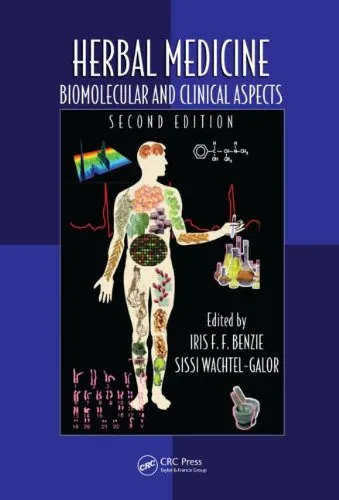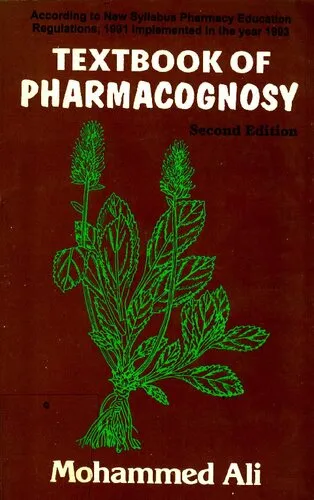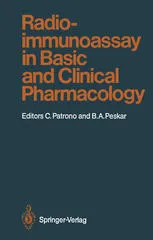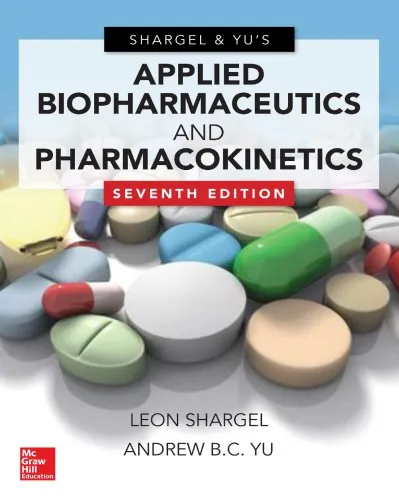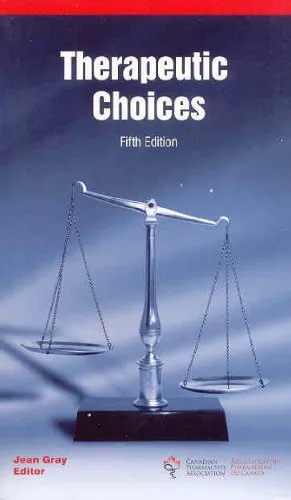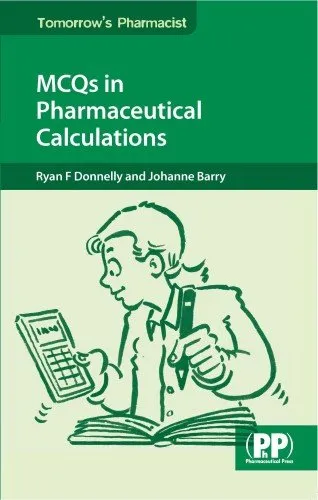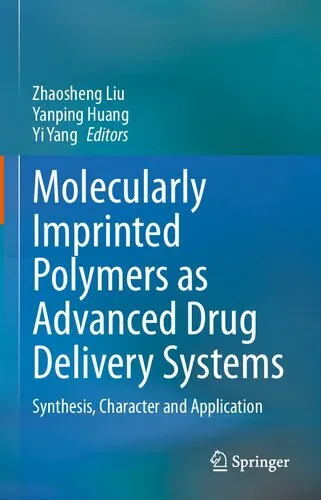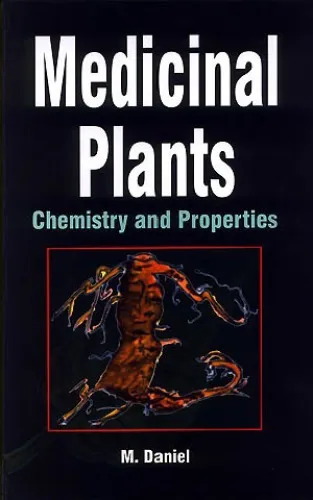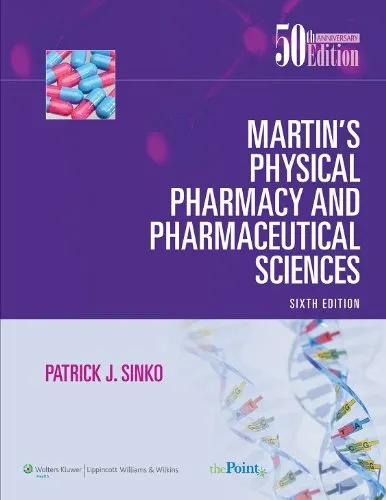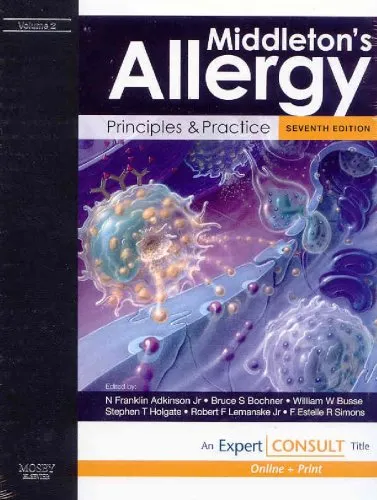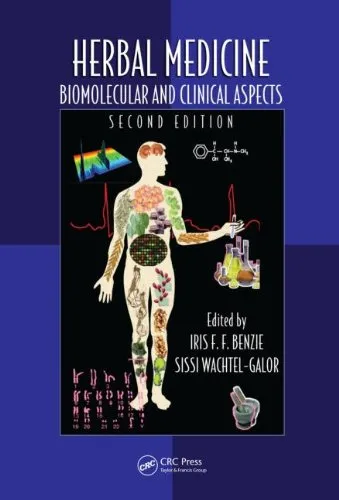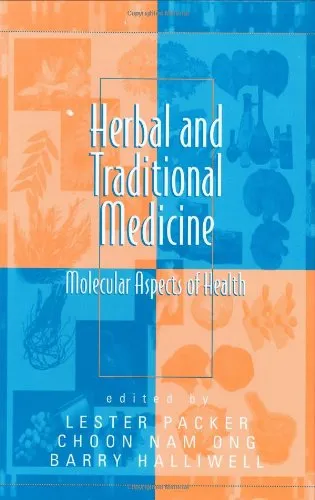Herbal Medicine: Biomolecular and Clinical Aspects, Second Edition (Oxidative Stress and Disease)
4.5
بر اساس نظر کاربران

شما میتونید سوالاتتون در باره کتاب رو از هوش مصنوعیش بعد از ورود بپرسید
هر دانلود یا پرسش از هوش مصنوعی 2 امتیاز لازم دارد، برای بدست آوردن امتیاز رایگان، به صفحه ی راهنمای امتیازات سر بزنید و یک سری کار ارزشمند انجام بدینکتاب های مرتبط:
معرفی کتاب "Herbal Medicine: Biomolecular and Clinical Aspects, Second Edition (Oxidative Stress and Disease)"
کتاب Herbal Medicine: Biomolecular and Clinical Aspects, Second Edition یکی از منابع معتبر و علمی در زمینه بررسی خواص دارویی گیاهان و تأثیر آنها بر استرس اکسیداتیو و بیماریهای مرتبط است. این کتاب که توسط Iris F. F. Benzie و Sissi Wachtel-Galor نگارش یافته، به طور دقیق به جزئیات بیومولکولی، بیوشیمی و کاربرد بالینی گیاهان دارویی پرداخته و نقش آنها در پزشکی نوین را تشریح میکند.
خلاصهای جامع از کتاب
در این کتاب، نویسندگان تلاش کردهاند تا پلی میان علم مدرن و طب سنتی ایجاد کنند. کتاب از دو بخش اصلی تشکیل شده است: بخش اول به جنبههای بیومولکولی و مکانیزمهای اثرگذاری گیاهان دارویی میپردازد. در این قسمت، به تجزیه و تحلیل مولکولهای فعال مانند آنتیاکسیدانها، فیتوکمیکالها و ساختارهای پیچیده شیمیایی پرداخته میشود. بخش دوم کتاب، تمرکز بیشتری بر جنبههای کلینیکال دارد و مطالعات انسانی را به عنوان مرجعی برای بررسی اثربخشی گیاهان دارویی ارائه میدهد. از مفاهیمی مانند Oxidative Stress، Pathophysiology، و درمانهای مکمل نیز بحث شده است.
کتاب به گونهای نوشته شده که خوانندگان از هر سطح علمی میتوانند از آن بهره ببرند، به خصوص متخصصانی که در زمینه پزشکی، داروسازی، علوم زیستی و تحقیقات غذایی فعالیت میکنند.
نکات کلیدی
- تأثیر Oxidative Stress بر بیماریهای مزمن مانند سرطان، دیابت و بیماریهای قلبی-عروقی.
- نقش فیتوکمیکالها در پیشگیری و درمان بیماریها.
- تمرکز ویژه بر ترکیبات آنتیاکسیدانی موجود در گیاهان مهم.
- مطالعات موردی از کاربردهای کلینیکال گیاهان دارویی.
- تحلیل دقیق مکانیسمهای بیولوژیکی و بیوشیمیایی.
نقلقولهای مشهور از کتاب
“The interplay between oxidative stress and herbal medicines opens windows to understanding the molecular basis of health and disease.”
“Nature has gifted us with tools to combat oxidative stress; it is our responsibility to harness and explore them effectively.”
چرا این کتاب اهمیت دارد؟
این کتاب به دلایل متعددی دارای اهمیت است. اول، آگاهی از ترکیبات فعال و عملکرد درمانی گیاهان دارویی میتواند کمک شایانی به توسعه درمانهای نوین کند که در پیشگیری و درمان بیماریهای مزمن مؤثر هستند. دوم، به واسطه بررسی دقیق علمی منابع طبیعی و بیوشیمیایی، این کتاب میتواند پل ارتباطی بین دانشمندان علوم پایه و پزشکان بالینی باشد. سوم، استرس اکسیداتیو موضوعی رو به رشد در مطالعات سلامتی مدرن است و این کتاب با ارائه دادههای مبتنی بر شواهد، راهنمای کاملی برای درک این پدیده ارائه میکند.
Introduction to "Herbal Medicine: Biomolecular and Clinical Aspects, Second Edition (Oxidative Stress and Disease)"
"Herbal Medicine: Biomolecular and Clinical Aspects, Second Edition" is a comprehensive reference designed for scientists, clinicians, healthcare professionals, and researchers who are interested in the intersection of traditional medicine, herbal remedies, and modern biomedical science. Authored by Iris F. F. Benzie and Sissi Wachtel-Galor, this book delves into the scientific basis of herbal medicine's efficacy, with a particular focus on its role in combating oxidative stress and managing disease through multidisciplinary approaches.
This edition expands on the success of its predecessor by incorporating the latest developments in research and evidence-based applications of herbal medicine. Integrating knowledge from fields such as pharmacology, molecular biology, nutrition, and clinical studies, this volume provides a balanced view of herbal therapies' therapeutic potential and the mechanisms underlying their actions. It addresses both the exciting possibilities and the challenges of using herbal medicine as a complementary or alternative approach in contemporary healthcare practices.
Detailed Summary of the Book
The book is structured to guide readers through a well-rounded exploration of herbal medicine. It begins by setting the stage with historical and cultural perspectives, illustrating how traditional systems of medicine—like Traditional Chinese Medicine (TCM), Ayurveda, and Western herbalism—have shaped modern practices and research. The authors emphasize the importance of integrating such traditions with scientific inquiry.
In the subsequent sections, the book takes a biomolecular dive into the key phytochemicals found in herbs, examining their antioxidant properties and the mechanisms by which they mitigate oxidative stress. These insights shed light on the molecular interplay between plant-derived compounds and human biology, providing concrete explanations for their observed health benefits.
The clinical aspects occupy a significant portion of the book, offering evidence-based insights into the role of herbal medicine in managing chronic and degenerative diseases such as cardiovascular conditions, neurodegenerative disorders, diabetes, and cancer. The book highlights the therapeutic potential of herbs not only in reducing oxidative stress but also in modulating inflammatory responses and fortifying the immune system.
"Herbal Medicine: Biomolecular and Clinical Aspects" also addresses critical issues such as standardization, quality control, potential herb-drug interactions, and safety concerns, aiming to equip practitioners with the pragmatic tools they need for responsible use of herbal therapies. By emphasizing the importance of rigorous research and clinical trials, the book underscores a collaborative approach to advancing herbal medicine within modern healthcare systems.
Key Takeaways
- A deep understanding of how herbal compounds combat oxidative stress and their role in disease prevention and management.
- Comprehensive insights into the molecular mechanisms, clinical benefits, and safety considerations of herbal medicine.
- A balanced integration of traditional medicinal knowledge and modern scientific methods.
- Critical evaluations of current research, highlighting both opportunities and challenges in the field.
- Practical guidance for clinicians and healthcare professionals on incorporating herbal medicine in patient care.
Famous Quotes from the Book
"The value of herbal medicine lies not only in its ability to heal but in its power to teach us about the complex interplay between nature and human health."
"Oxidative stress bridges the gap between the ancient wisdom of herbal remedies and modern molecular sciences, offering a path to innovative therapeutic solutions."
Why This Book Matters
In an era where chronic diseases and oxidative stress are increasingly prevalent, "Herbal Medicine: Biomolecular and Clinical Aspects, Second Edition" provides a timely and essential resource for understanding how natural remedies can complement modern medicine. Its focus on scientific rigor ensures that readers can explore herbal medicine with a critical and evidence-based perspective, making it invaluable for advancing integrated healthcare.
Furthermore, the book fosters a deeper appreciation for the role of plants in human health, bridging the gap between traditional knowledge and contemporary biomedical advancements. By addressing practical considerations like quality control, standardization, and safety, it empowers practitioners and researchers to harness the full potential of herbal medicine responsibly and effectively.
Ultimately, this book serves as both a guiding reference and a source of inspiration for those dedicated to discovering innovative, natural, and science-backed solutions to some of today's most persistent health challenges.
دانلود رایگان مستقیم
شما میتونید سوالاتتون در باره کتاب رو از هوش مصنوعیش بعد از ورود بپرسید
دسترسی به کتابها از طریق پلتفرمهای قانونی و کتابخانههای عمومی نه تنها از حقوق نویسندگان و ناشران حمایت میکند، بلکه به پایداری فرهنگ کتابخوانی نیز کمک میرساند. پیش از دانلود، لحظهای به بررسی این گزینهها فکر کنید.
این کتاب رو در پلتفرم های دیگه ببینید
WorldCat به شما کمک میکنه تا کتاب ها رو در کتابخانه های سراسر دنیا پیدا کنید
امتیازها، نظرات تخصصی و صحبت ها درباره کتاب را در Goodreads ببینید
کتابهای کمیاب یا دست دوم را در AbeBooks پیدا کنید و بخرید
1445
بازدید4.5
امتیاز0
نظر98%
رضایتنظرات:
4.5
بر اساس 0 نظر کاربران
Questions & Answers
Ask questions about this book or help others by answering
No questions yet. Be the first to ask!
